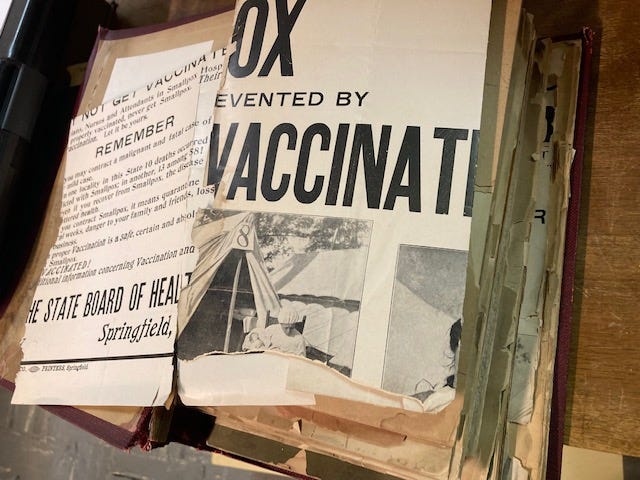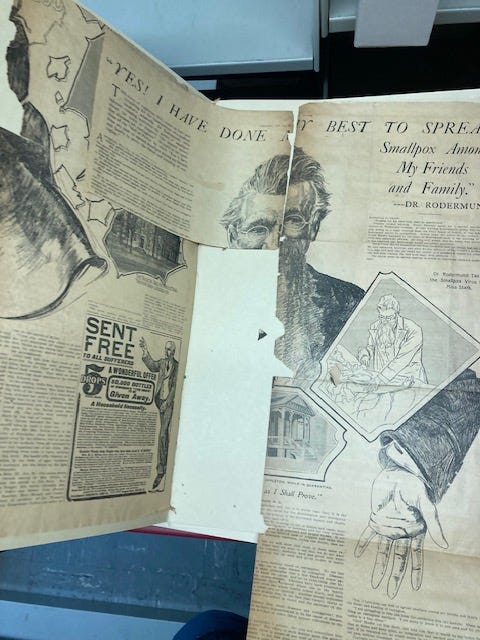
PHILADELPHIA (KYW Newsradio) — A Philadelphia museum gets a financial booster shot to help us better learn about the history of vaccines and vaccinations.
The Mütter Museum at the College of Physicians of Philadelphia mainly deals with the mysteries of the human body as well as the history of diagnosis and treatment of disease.
“One of the ways we understand the present is through the lens of the past,” said Heidi Nance, the director of the college’s Historical Medical Library.
It’s no surprise that they have a large collection of materials related to the history of vaccination.
“Original letters by the creator of the first successful vaccine, Edward Jenner, and also Benjamin Waterhouse who is the first person in the United States to test smallpox. So we have some of their original manuscripts,” said Nance.
“We also have correspondence between George Washington, Benjamin Rush, and John Hancock discussing vaccination during the Revolutionary War and whether or not to vaccinate the troops.”
Washington eventually ordered smallpox vaccination for his troops.
She said their collection shows pro- and anti-vaccination perspectives from the early days of vaccines that mirror what we’ve seen throughout the COVID-19 pandemic.
“We have a large collection of materials, actually, from the Anti-Vaccination Society of America including their founding documents and their charter. Those are really interesting documents because they show concerned parents, newspaper clippings, and other perspectives,” Nance said.

“Parents, in particular, being concerned about mandatory vaccination for their children going to school. There (was) concern that the vaccination (was) unsafe. There (was) concern essentially about bodily autonomy … many ways as we think of it today.”
The museum was recently rewarded with nearly $60,000 in grant money to help preserve and research those records and materials, as well as make them accessible to the public.
“We will be able to make these materials available digitally to anyone who has an internet connection because these materials are so fragile,” said Nance. “Until now, we’ve only been able to provide access to them on-site, and some of them are too fragile to be handled at all.”

